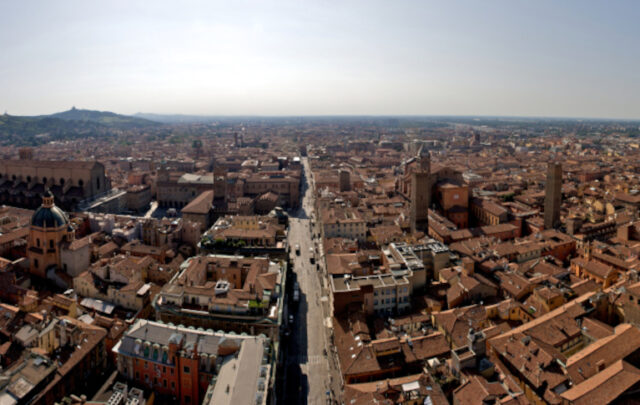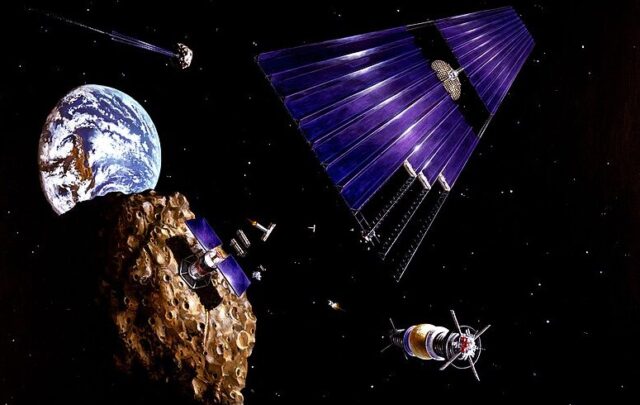Environment
Global Warming: Death in the Deep-Freeze
Kate Ravilious, The Independent via Common Dreams
As global warming melts the world’s ice sheets, rising sea levels are not the only danger. Viruses hidden for thousands of years may thaw and escape – and we will have no resistance to them.
Last week, the latest study to track global warming revealed that Alaska’s snowless season is lengthening. As the world warms and ice-sheets and glaciers begin to melt, most of us worry about how the earth will respond and what kind of impact climate change will have. Will flooding become a regular feature, or is the land going to become parched? Are hurricanes and typhoons going to spring up in places they have never visited before? Is the rising sea level going to swallow some of the world’s most fertile farmland, along with millions of homes?
All of these are valid concerns, but now it turns out that the impact of global warming could be worse than we first imagined. Ice sheets are mostly frozen water, but during the freezing process they can also incorporate organisms such as fungi, bacteria and viruses. Some scientists believe that climate change could unleash ancient illnesses as ice sheets drip away and bacteria and viruses defrost. Illnesses we thought we had eradicated, like polio, could reappear, while common viruses like human influenza could have a devastating effect if melting glaciers release a bygone strain to which we have no resistance. What is more, new species unknown to science may re-emerge. And it is not just humans who are at risk: animals, plants and marine creatures could also suffer as ancient microbes thaw out.
(28 September 2005)
Interior secretary says US will push search for energy
Felicity Barringer, NY Times
WASHINGTON, Sept. 27 – Interior Secretary Gale A. Norton said Tuesday that after the two destructive gulf hurricanes that battered the nation’s energy heartland, the Bush administration would intensify its push to expand energy development on public lands including the Arctic National Wildlife Refuge and in the nation’s coastal waters.
“The vulnerability of having all the energy supplies and refining and processing capacity in one geographic area reinforces the idea that we need diversity of supply,” Ms. Norton said in an interview.
Citing government reports on the increasing demand for petroleum and natural gas and the sustained high prices that tend to result, she said, “The hurricanes have brought more attention to the fundamental issue.”
While Ms. Norton took no position on a Congressional proposal to end a 25-year moratorium on oil leases on the outer continental shelf and to eliminate internal departmental appeals of administration decisions to lease public lands, she did not reject its approach.
…But while cautious about endorsing legislation or making new policy pronouncements, Ms. Norton left little doubt that she would continue her efforts to reshape the policies and practices that have restrained private interests – be they energy exploration companies or the makers of recreational vehicles like motorized water scooters and all-terrain vehicles – that seek greater access to public lands.
(28 September 2005)
See also US: Changes to Endangered Species Act could remove roadblocks to energy development
Arctic ice ‘disappearing fast’
Richard Black, BBC
The area covered by sea ice in the Arctic has shrunk for a fourth consecutive year, according to new data released by US scientists.
They say that this month sees the lowest extent of ice cover for more than a century.
The Arctic climate varies naturally, but the researchers conclude that human-induced global warming is at least partially responsible.
They warn the shrinkage could lead to even faster melting in coming years.
“September 2005 will set a new record minimum in the amount of Arctic sea ice cover,” said Mark Serreze, of the National Snow and Ice Data Center (NSIDC), Boulder, Colorado.
“It’s the least sea ice we’ve seen in the satellite record, and continues a pattern of extreme low extents of sea ice which we’ve now seen for the last four years,” he told BBC News.
(28 September 2005)
Effect of Greenhouse Gases Rising, Government Says
Randolph E. Schmid, Associated Press via ENN
WASHINGTON — The effect of greenhouse gases on the Earth’s atmosphere has increased 20 percent since 1990, a new government index says.
The Annual Greenhouse Gas Index was released Tuesday by the Climate Monitoring and Diagnostics Laboratory in Boulder, Colo.
Greenhouse gases such as carbon dioxide accumulate in the atmosphere as a result of industrial and other processes. They can help trap solar heat, somewhat like a greenhouse, resulting in a gradual warming of the Earth’s atmosphere.
The Earth’s average temperature increased about 1 degree Fahrenheit during the 20th century. The Intergovernmental Panel on Climate Change warns that continuing increases could have serious effects on crops, glaciers, the spread of disease, rising sea levels and other changes.
(28 September 2005)
Bush Faces Wall Street Pressure on Global Warming
Kim Chipman, Bloomberg
The deadliest U.S. hurricane season in more than a century has some Wall Street investors sounding like members of the Sierra Club.
Firms including Goldman Sachs Group Inc. and JPMorgan Chase & Co. are telling U.S. clients for the first time that climate change poses financial risks. With damage estimates for Hurricanes Katrina and Rita as high as $200 billion, an increasing number of investors are joining public pension funds in urging action on global warming, which scientists say may be making storms more powerful.
“Definitely there will be more attention paid on Wall Street to natural disasters and global warming,” said Michael Johnston, a New York-based investment strategist at Capital Group Cos., the third-largest U.S. mutual-fund firm, which manages more than $1 trillion.
Katrina hit the Gulf Coast on Aug. 29, followed three weeks later by Rita, which at its peak was the third-most-intense Atlantic hurricane ever. The devastation disrupted energy supplies, and insurers and economists say they worry about another big storm hitting this year.
“Katrina is going to be a big stimulus for Washington to act,” said Morton Cohen, a hedge fund manager at Cleveland- based Clarion Group, which manages $200 million in assets, almost half of which are energy-related. “It’s pretty obvious we have to do something about building refineries in this country and diminishing our amount of coal-burning toxins.”
President George W. Bush has questioned the science behind climate change and rejected calls for a mandatory federal cap on carbon dioxide and other greenhouse gases.
(28 September 2005)
The Environment: Death and Report Toward a Greener Politics
American Prospect
Many online articles in this special edition of the liberal American Prospect
Global Denial
Katrina is a portent. But will it cause Americans to embrace fundamental change in how we consume energy and understand politics?
By Ross Gelbspan
The Afterlife of Environmentalism
Can we tie big global concerns to the everyday lives of Americans?
By John M. Meyer
We’re All Environmentalists Now
It isn’t environmentalism that died. What expired was progressive politics based on single-issue interest groups.
By Mark Schmitt
Changing the Climate
Why a new approach to global warming would make for a better politics — and planet.
By Bill McKibben
Laboratories of Progress
It’s time to look past the blockage in Washington and fight for good energy policy at home.
By Jim Marzilli
Shooting The Moon
The Apollo Alliance’s grand vision for energy independence is a distant legislative goal, but it can help transform politics right now.
By Amanda Griscom Little
The End of the Population Movement
The challenge isn’t population control. It’s sustainable development, built upon the emancipation of women and economic opportunity.
By Adam Werbach
A New Environmentalism
Could a new green ethic provide common cause in our deeply divided nation?
By Carl Pope
A Breath of Fresh Air
How environmentalists, health experts, and poverty advocates are forging new coalitions to tackle an urban asthma epidemic
By Geoffrey Lomax, Paul English and Eric Roberts
An Emergent Progressive Majority
Americans are tired of voting against someone. It’s time to recruit leaders who’ll speak clearly to people’s real needs and problems.
By Gloria Totten
New Century, New Challenges
When it comes to the environment, we should think and act differently — but not at the expense of what we’ve already achieved.
By Jan Schakowsky
Death Warmed Over
Beyond environmentalism: imagining possibilities as large as the crisis that confronts us.
By Michael Shellenberger and Ted Nordhaus
(October 2005 issue)
Dave Roberts at Gristmill comments on the articles:
The Reapers and their britches
More on the Prospect package
Werbach on population
Changing the Climate
Why a new approach to global warming would make for a better politics — and planet
Bill McKibben, American Prospect
It’s hard to remember how popular the environmental idea was at the end of the 1980s. The movement had survived the crude efforts of the Reagan administration to kill it off. (Remember James Watt? Remember Treasury Secretary Don Regan advising that the best defense against a thinning ozone layer was a baseball cap and a pair of sunglasses?) A barge loaded with American garbage circled the world as one country after another refused to let it land. The beaches of Long Island and New Jersey were awash in medical waste. Time magazine’s “Man of the Year” in 1988 was actually a planet: our “Endangered Earth.” A serious environmentalist would soon become vice president of the United States.
So what happened? Carbon dioxide happened. If you want to understand the death of environmentalism, you need to understand the gas on which it choked. Carbon dioxide (CO2) was fatefully different from all the pollution that had come before it.
…it’s not like the environmental problems we faced in the past. We can’t solve it with a new law or a catalytic converter on our tailpipe. We need to upend the entire way we go about powering our lives, which is to say upend our economies and daily habits. And for American politicians, channeling American voters, that has always seemed far too much to contemplate
…In short, no energy source was ever as easy as fossil fuel. A lump of coal or a pool of oil is energy stored in compact, dense, easy-to-transport form, convenient to stockpile until you need it.
So only part of the change is going to be technological. We’re also going to need to shift expectations. The American way of life is going to have to be up for negotiation
(October 2005 issue)
Good, long summary by one of America’s best environmental writers. -BA





